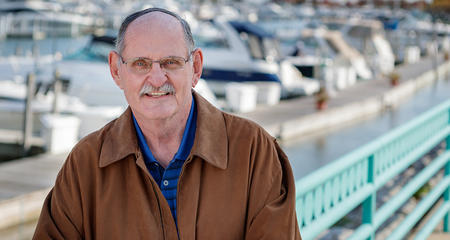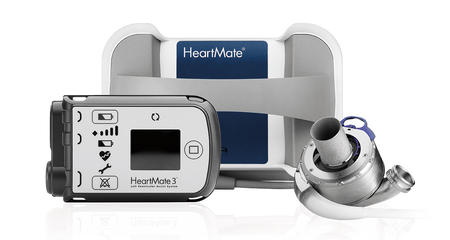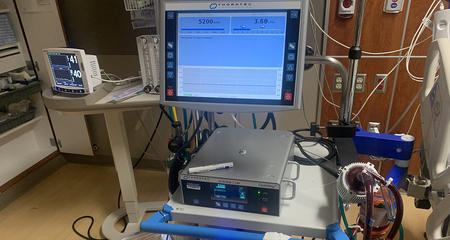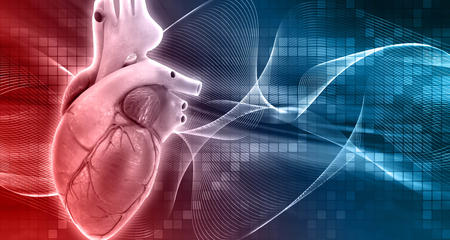Cardiogenic shock occurs when the heart is unable to pump enough blood to meet the needs of the body. Often, cardiogenic occurs due to severe heart attack, but it can also occur after heart surgery, in patients with chronic heart congestive failure or with a severe heart disease such as cardiomyopathy. It can result in renal failure, respiratory failure and death.
As with other heart conditions, the best way to prevent cardiogenic shock is to practice good heart health — a healthy diet, exercise and quitting smoking. Talk to your provider if you have any questions.
Advanced Diagnostics
Given the seriousness of this condition, our team will work to diagnose and treat cardiogenic shock as quickly as possible. Many tests can be used to confirm diagnosis, starting with blood pressure measurement (patients with cardiogenic shock have very low blood pressure). Other tests may include blood tests, chest x-rays, echocardiograms and cardiac catheterizations.
Learn more our advanced cardiovascular diagnostic tests.
Comprehensive Treatments for Cardiogenic Shock
The goal of treatment for cardiogenic shock is to restore blood pressure and heart function as quickly as possible to minimize the damage to the patient’s heart and other organs. Treatments often may begin in an emergency setting, with oxygen assistance and IV fluids to increase blood pressure or heart function.
Depending on the cause of cardiogenic shock some patients may be prescribed medications as a first stage of treatment to stabilize the hearts function. When more advanced medical intervention is needed, our Cardiogenic Shock Team can provide patients with the full scope of mechanical circulatory devices to either temporarily support the heart as it recovers or as a bridge to surgical intervention to correct the problem within your heart. Short-term mechanical cardiac pumps used by our team of physicians to treat cardiogenic shock include:
- Impella® — The Impella 5.0 heart pump is used as a short team device to stabilize the heart function and provide pumping support until further surgical intervention can be performed.
- Extracorporeal Membrane Oxygenation (ECMO) — ECMO is used to quickly stabilize patients in cardiogenic shock by supporting cardiac function. ECMO can be used until functional recovery has occurred or until the patient stabilizes to receive further treatment.
- LifeSPARC™ — This short-term heart pump provides a steady supply of oxygenated blood to the body’s organs while decompressing the left ventricle to reduce how hard the heart needs to work.
When further medical care is needed, our team of physicians may perform a surgical intervention to correct the problem within your heart. These surgical options can include:
Recovery after cardiogenic shock is a long process as patients can be in ICU for months at times. We will work with you and your family to provide you with a rehabilitation plan and additional support.
Team Collaboration and Exceptional Staff
Our Cardiogenic Shock team brings together the expertise of advanced heart failure cardiologists and cardiovascular surgeons who quickly assess and determine a treatment plan for cardiogenic patients upon referral. Patients will also be supported by a dedicated team of anesthesiologists, intensivists and perfusionists. Our team is available 24/7 for the evaluation and management of cardiogenic shock patients. Learn more about our Cardiogenic Shock team.
Your other organs may require additional support while your heart is recovering or while you wait for surgery. We work with our pulmonary/lung team if you need to be put on a breathing machine to take the stress off your lungs. We also work with our kidney team if you need to be put on temporary dialysis.
Research
As members of an academic medical center, heart and vascular physicians are up-to-date on the latest research findings and treatment techniques. Our patients also have access to significant local and national research studies and clinical trials.
More to Explore




